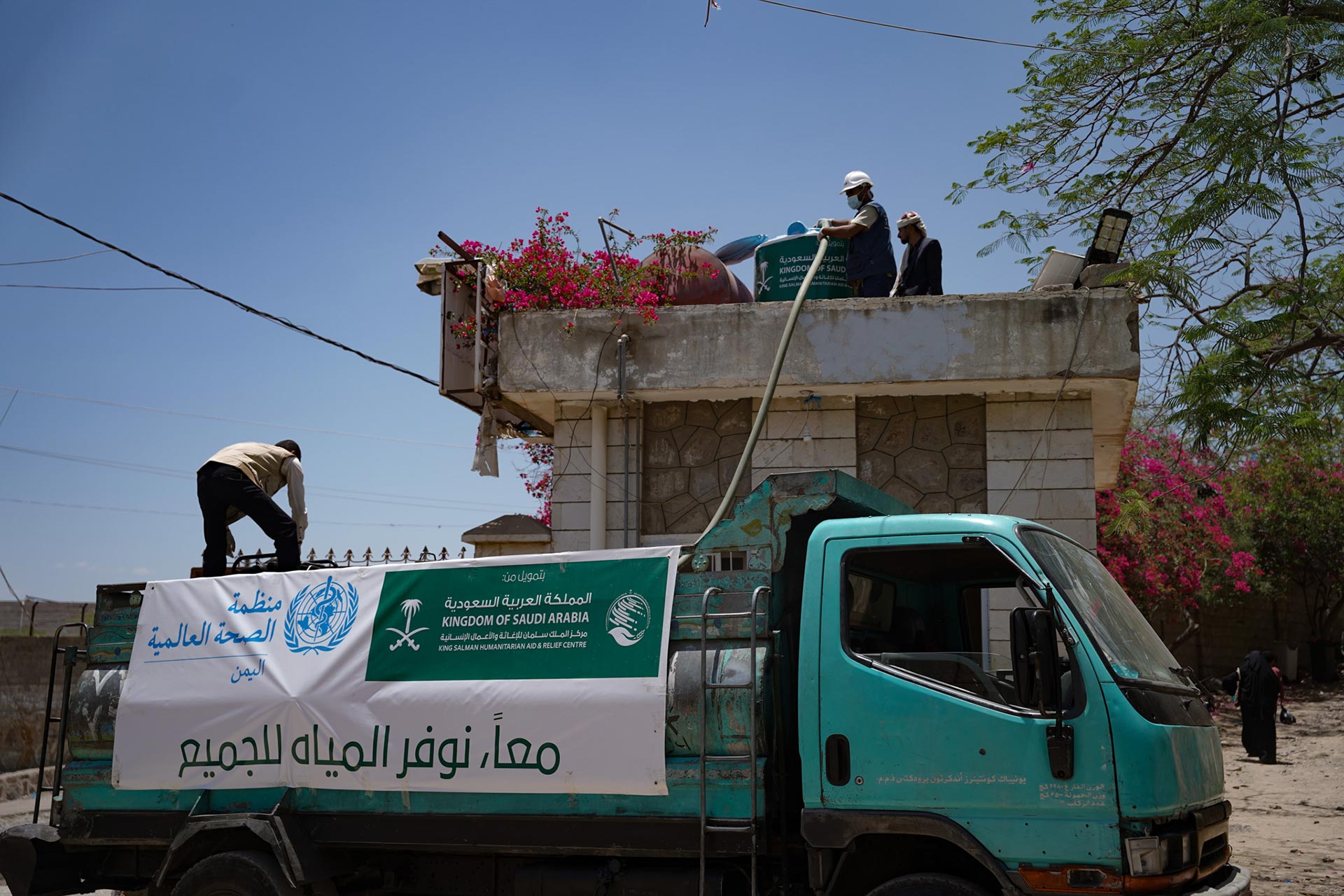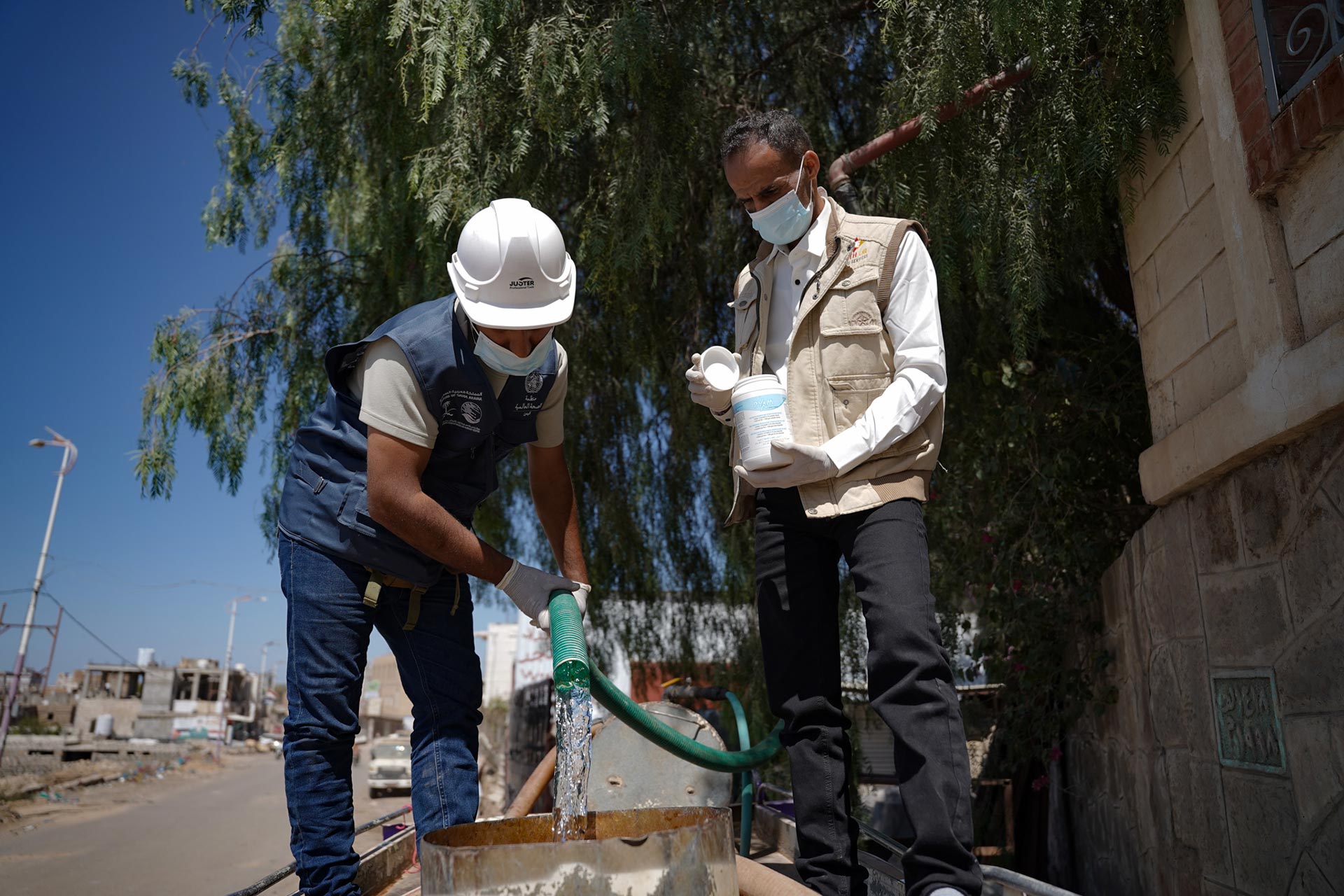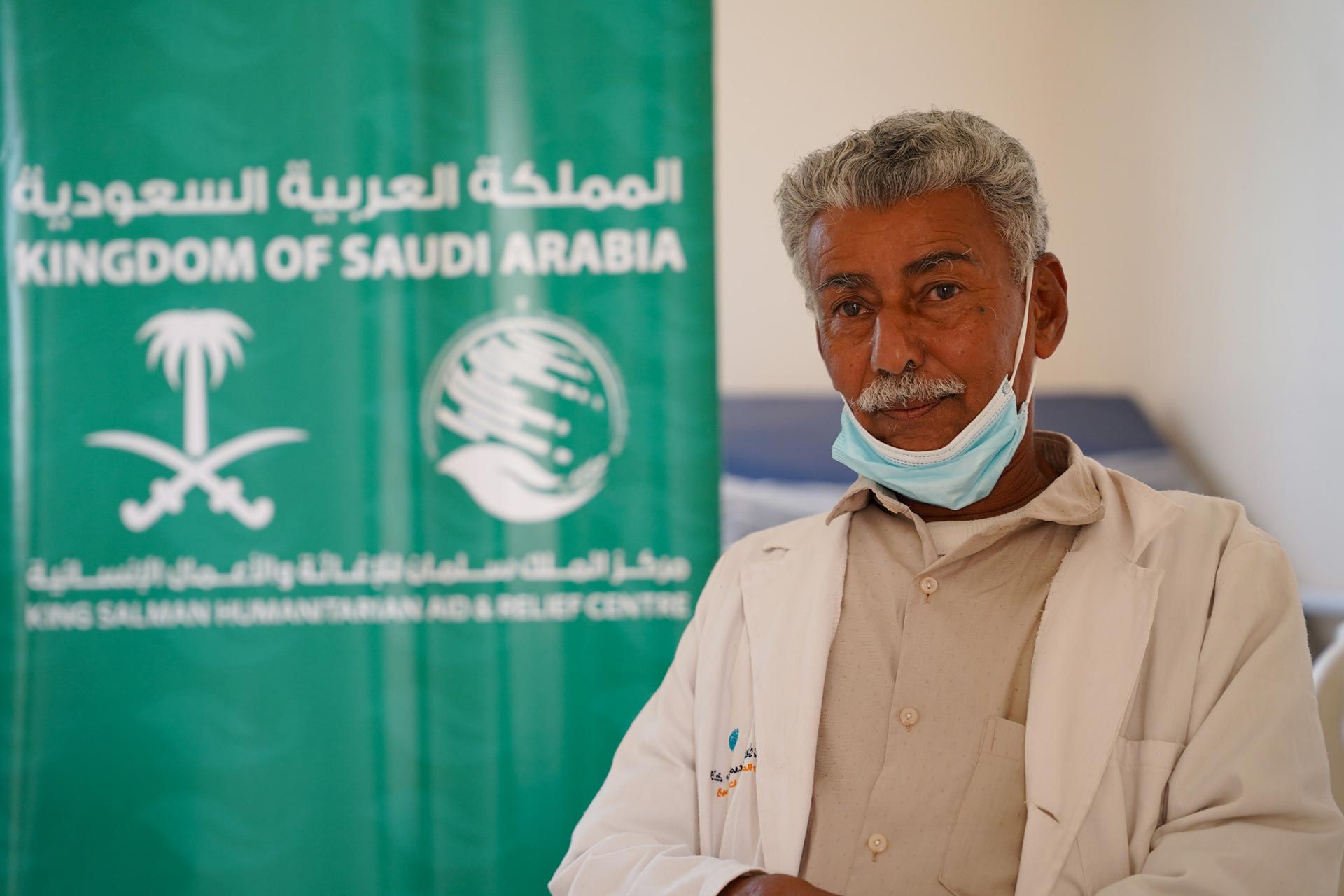 25 June 2025, Aden, Yemen – Before the water trucks started arriving, each morning at the hospital began with uncertainty.
25 June 2025, Aden, Yemen – Before the water trucks started arriving, each morning at the hospital began with uncertainty.
“We used to check the water tanks before we checked on patients,” says Amal, a nurse at a Khalifa Hospital in Yemen. “If there was no water, we had to rethink everything –sterilization, wound care, even washing hands.”
Water, a simple and essential resource, had become increasingly scarce in Yemen’s overburdened health facilities. Without it, health care workers like Amal had to make difficult decisions every day.
“You can’t clean an operating room or safely deliver a baby without water,” she says. “But often, no water was a daily reality.”
Things began to shift when WHO launched to restore access to safe water in hospitals through “Improved WASH Services in Hospitals with Sustainable Water Supply” project, supported by the King Salman Humanitarian Aid and Relief Centre (KSrelief),to serve the most vulnerable populations in Yemen. With this initiative, 60 health care facilities now receive regular trucks of clean water, allowing to better serve 580,000 people, many of them displaced or living in high-risk areas.
A matter of survival
 Before the intervention, water shortages led to critical procedures being postponed and the closure of delivery rooms. Sanitation and basic infection prevention protocols were compromised.
Before the intervention, water shortages led to critical procedures being postponed and the closure of delivery rooms. Sanitation and basic infection prevention protocols were compromised.
“We sometimes had to send patients elsewhere, not because we lacked doctors, but because we had no water,” says Dr. Mohammed, Head of Nursing Department at Taiz Psychiatric Hospital,. “It was painful for everyone involved.”
Today, with regular water deliveries and a water quality control system in place, project hospitals can function more reliably. Disinfection routines are followed, surgical wards are active and basic hygiene is no longer a daily struggle.
“We’ve regained stability. Staff are less stressed and patients are safer,” says Dr.Mohammed.
Delivering more than a water
Behind the scenes are people like Hussein, a water trucking supervisor, who oversees distribution to more than 50 hospitals in 5 governorates.
“Every tank we deliver is tested and treated before use,” he explains. “And when a hospital calls to say they’ve received the delivery, we know we’ve helped someone get care they can trust.”
There have been challenges along the way, rough roads, occasional contamination and the pressure to meet growing needs. But the impact, Hussein adds, makes it worth it.
“Clean water doesn’t just improve services, it protects lives.”
New standards of care
 Amal senses the change in every corner of Khalifa Hospital.
Amal senses the change in every corner of Khalifa Hospital.
“Now we can focus on patient care, not just on coping. We’re able to follow proper hygiene steps and respond quickly in emergencies. That makes a real difference, especially in maternity and surgery.”
Infections are down, Staff morale is up, and for the first time in years, patients-and their relatives are expressing satisfaction with the cleanliness and safety of facilities.
“Even visitors notice,” says Amal. “People are no longer afraid to come here for service.”
Thankful for every drop
“Thank you for seeing this need, for responding before things got worse,” says Amal. “This wasn’t just about infrastructure,” adds Mohammed. “It was about restoring dignity and trust to health care in Yemen.” With KSrelief’s fund, safe water has returned to places where hope was fading, and with it, the ability of health care workers to do what they are trained to do. Save lives, safely and with dignity.



